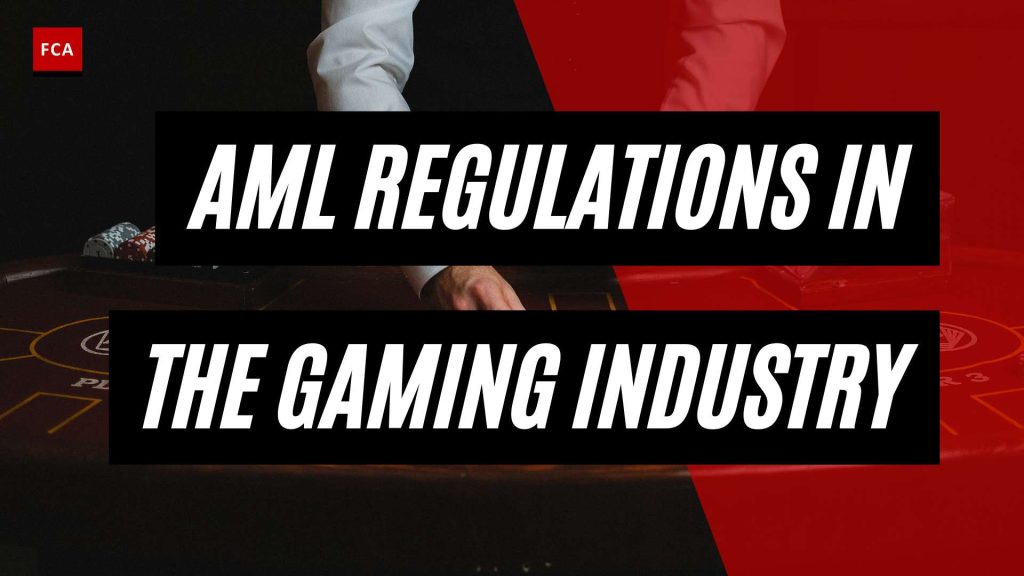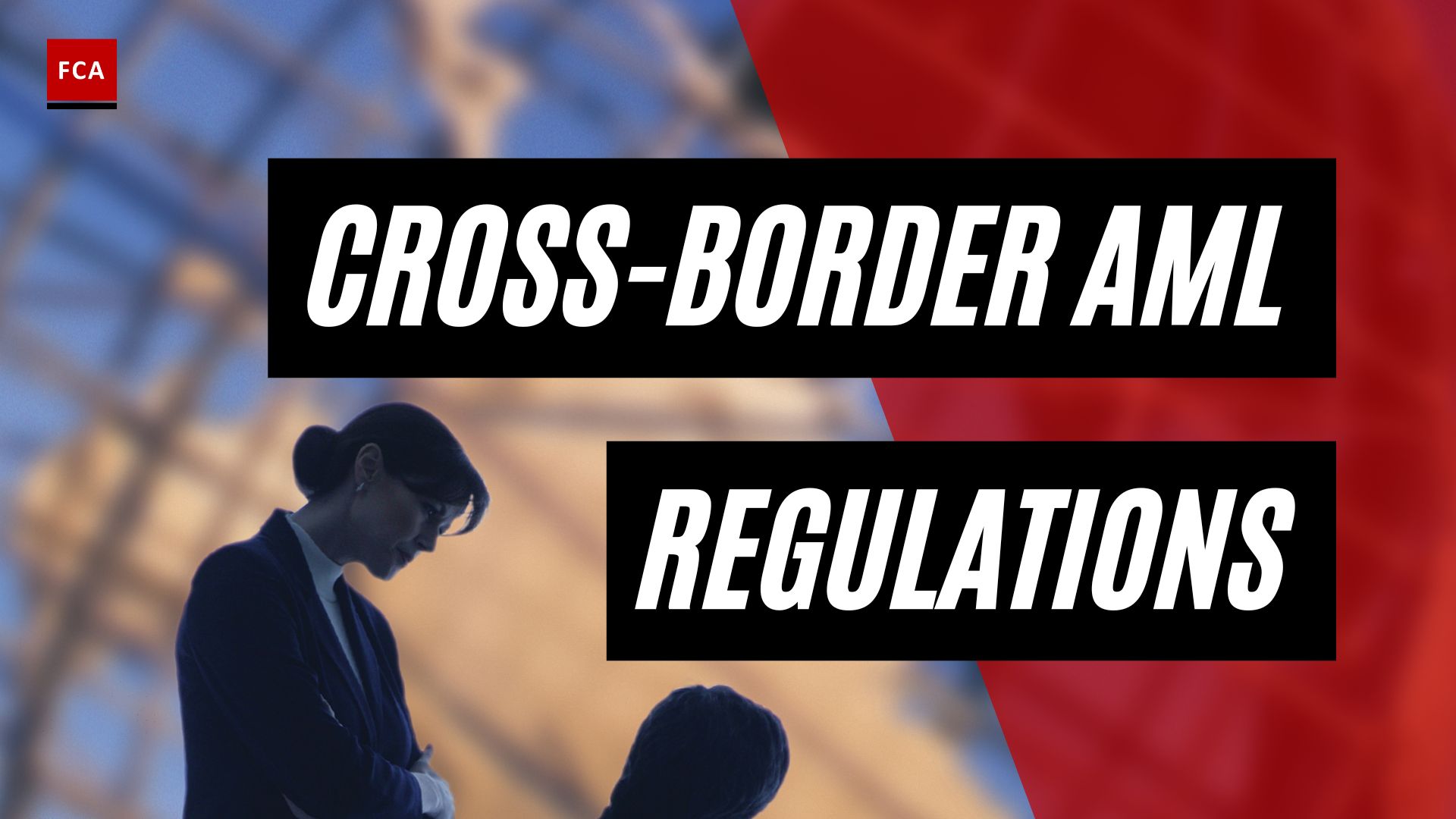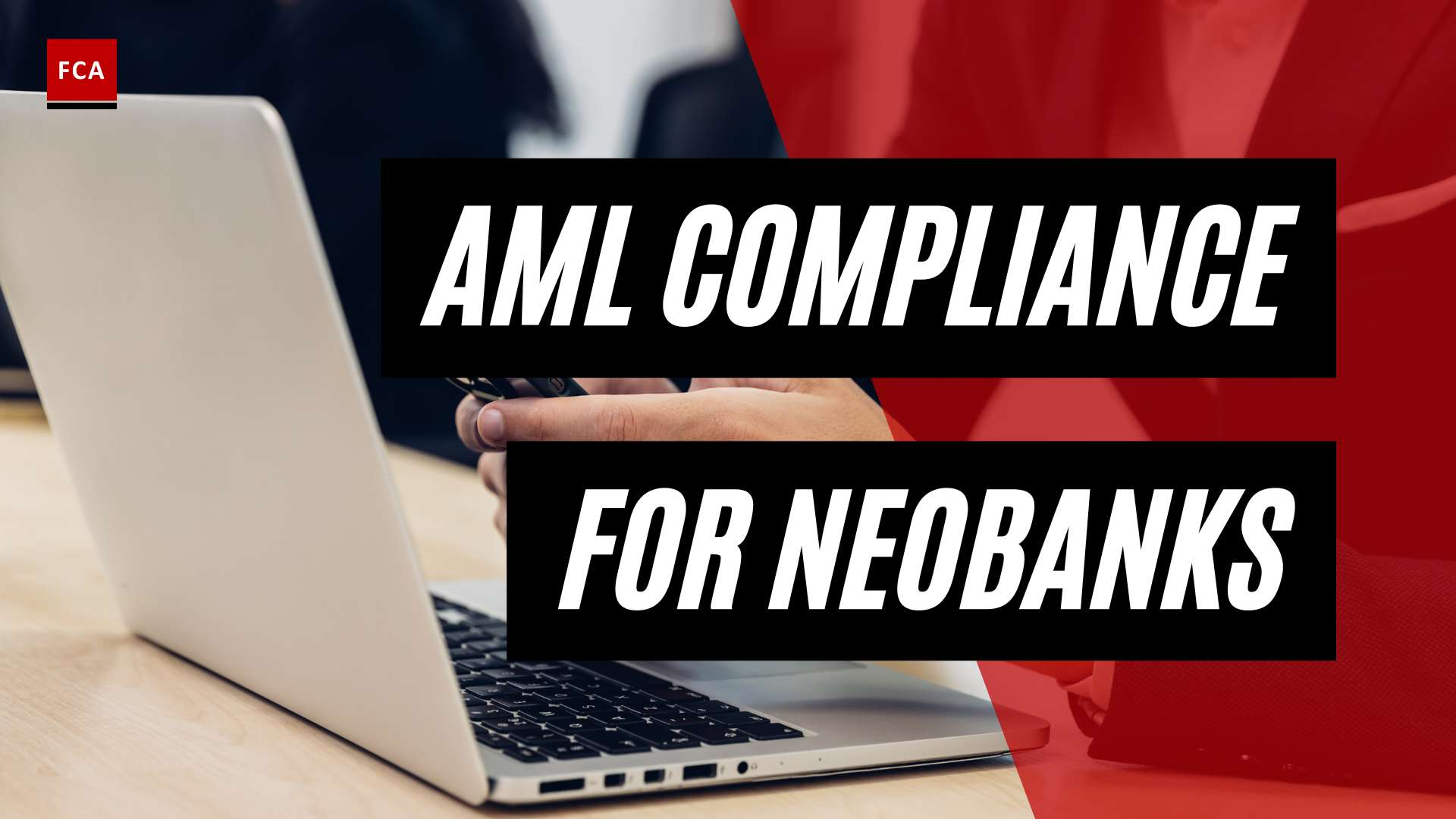AML Regulations in the Gaming Industry
In the gaming industry, Anti-Money Laundering (AML) regulations play a crucial role in safeguarding against illicit financial activities. The implementation of effective AML measures is essential to prevent money laundering, terrorist financing, and other financial crimes within the sector. This section will explore the importance of AML regulations in gaming and provide an overview of the specific regulations that apply.
The Importance of AML Regulations in Gaming
The gaming industry is considered high-risk for money laundering due to its large volumes of international transactions and frequent currency exchanges (Financial Crime Academy). Criminals may exploit gaming platforms to launder illicit funds by converting them into virtual currencies or using the platforms for illicit transactions. Therefore, AML regulations are crucial to detect, prevent, and deter such activities.
By implementing robust AML measures, gaming operators can help protect their platforms, customers, and the integrity of the overall industry. AML regulations ensure that gaming companies establish and maintain effective control systems to identify and mitigate money laundering risks. Compliance with these regulations is not only a legal obligation but also a vital aspect of maintaining trust and credibility within the gaming sector.
Overview of AML Regulations in the Gaming Industry
AML regulations in the gaming industry can vary significantly among different countries and regions. It is essential for gaming companies to stay informed and compliant with the specific requirements of each jurisdiction they operate in (Financial Crime Academy). The following are some key aspects covered by AML regulations in the gaming industry:
-
Customer Due Diligence (CDD): Gaming operators are required to implement robust CDD procedures to verify the identity of their customers and assess their potential money laundering risks. This includes obtaining sufficient information about the customer’s identity, the purpose of the business relationship, and the source of funds or wealth.
-
Transaction Monitoring and Reporting: Gaming companies must establish systems for monitoring and analyzing customer transactions to identify suspicious activities. They are also obligated to report any suspicious transactions to the relevant authorities as part of their AML obligations.
-
International AML Regulations: The gaming industry is subject to international AML regulations, such as the Fifth Anti-Money Laundering Directive (AMLD5), which aims to combat money laundering and terrorist financing in the European Union. Additionally, individual countries, such as the United Kingdom, Malta, and Gibraltar, have their own specific AML regulations applicable to the gaming sector.
Gaming operators should strive to go beyond mere compliance with minimum regulatory requirements. Implementing comprehensive AML programs, conducting regular AML audits, and staying up to date with industry best practices are essential for effective AML compliance in the gaming industry. By doing so, gaming companies can contribute to a more secure and trustworthy gaming environment.
For more information on AML compliance best practices for gaming operators, please refer to our article on gaming industry AML best practices.
AML Compliance in the Gaming Sector
Ensuring compliance with Anti-Money Laundering (AML) regulations is of utmost importance in the gaming industry. Gaming companies are increasingly being targeted by money launderers due to the large volumes of international transactions and frequent currency exchanges that take place within the sector. To address this risk, robust AML compliance programs must be implemented to detect and prevent illicit financial activities. In this section, we will explore the compliance challenges specific to the gaming industry, the role of risk assessment in AML compliance programs, the importance of customer due diligence (CDD), and the significance of transaction monitoring and reporting.
Compliance Challenges in the Gaming Industry
The gaming industry faces unique compliance challenges when it comes to AML regulations. The sector’s high-risk nature, characterized by large sums of money flowing through gaming platforms on a daily basis, makes it an attractive target for money launderers. Additionally, the international nature of the gaming industry, with transactions occurring across borders and frequent currency exchanges, further amplifies the risk.
To combat these challenges, gaming companies must stay informed about and adapt to the specific AML regulations of each jurisdiction they operate in. Regulations can vary significantly, and failure to comply can result in severe penalties, fines, and reputational damage. Therefore, it is crucial for gaming operators to prioritize AML compliance efforts and keep up-to-date with evolving regulatory requirements.
Risk Assessment in AML Compliance Programs
Risk assessment plays a pivotal role in designing effective AML compliance programs for the gaming sector. It involves evaluating the inherent risks associated with the company’s operations, including the types of gaming services provided, geographical reach, and customer profiles. By conducting a comprehensive risk assessment, gaming operators can identify the areas of highest risk and allocate resources accordingly to implement appropriate AML controls and procedures.
A risk-based approach ensures that AML measures are proportionate to the identified risks, allowing gaming companies to focus their efforts on the areas where money laundering risks are most significant. Regular reviews of the risk assessment process are essential to adapt to changing circumstances and emerging threats in the gaming industry.
Customer Due Diligence (CDD) in Gaming
Customer Due Diligence (CDD) is a fundamental aspect of AML compliance in the gaming sector. It involves verifying the identity of customers and assessing the potential risks associated with their transactions. Gaming operators must establish CDD procedures to ensure that they have a clear understanding of their customers’ identities, sources of funds, and intended gaming activities.
CDD measures can include obtaining identification documents, conducting background checks, and implementing ongoing monitoring of customer transactions. Robust CDD processes enable gaming companies to detect and report suspicious activities promptly, contributing to the overall effectiveness of their AML compliance programs.
Transaction Monitoring and Reporting
Transaction monitoring and reporting are critical components of AML compliance in the gaming industry. Gaming operators must establish systems and processes to monitor customer transactions for potential suspicious activities. This involves analyzing transaction patterns, identifying unusual or high-risk transactions, and reporting any suspicious activities to the relevant authorities.
Transaction monitoring can be automated using advanced software tools that can help detect complex patterns and anomalies. These tools assist in identifying potential money laundering activities and provide gaming operators with the necessary information to report such activities in a timely manner.
By prioritizing effective transaction monitoring and reporting mechanisms, gaming companies can contribute to the collective efforts in combating money laundering and maintaining the integrity of the gaming industry.
In the next section, we will explore the international AML regulations specific to the gaming industry, including AMLD5 and its impact, as well as the AML regulations in the United Kingdom, Malta, and Gibraltar. Stay tuned for more insights into AML compliance in the gaming sector.
International AML Regulations in the Gaming Industry
As the gaming industry continues to expand globally, it faces increasing scrutiny and regulation in relation to anti-money laundering (AML) measures. International AML regulations have been established to combat money laundering and terrorist financing within the gaming sector. In this section, we will explore the impact of the 5th Anti-Money Laundering Directive (AMLD5) on the gaming sector, as well as the AML regulations in the United Kingdom, Malta, and Gibraltar.
AMLD5 and its Impact on the Gaming Sector
The European Commission’s 5th Anti-Money Laundering Directive (AMLD5) has had a significant impact on the gaming industry, introducing a more comprehensive approach to AML regulations. AMLD5 extends AML obligations to various entities in the gaming sector, including virtual currency exchange platforms, custodian wallet providers, online gambling platforms, and land-based casinos. This extension aims to address the potential risks associated with money laundering and terrorist financing in these areas (Financial Crime Academy).
By including virtual currencies and online gambling platforms within the scope of AML regulations, AMLD5 aims to ensure that appropriate measures are in place to detect, prevent, and mitigate money laundering risks. These measures include customer due diligence, suspicious transaction monitoring, and reporting obligations. The directive also emphasizes the importance of cooperation and information sharing among relevant authorities and entities to enhance the effectiveness of AML efforts in the gaming sector.
AML Regulations in the United Kingdom
The United Kingdom has acknowledged the need for tighter AML regulations in the gaming industry. The country has implemented the 4th and 5th AML Directives, which set standards for combating money laundering, terrorist financing, and other financial crimes within the sector. The regulations in the UK require gaming operators to establish robust AML policies and procedures, conduct risk assessments, and implement customer due diligence measures (Financial Crime Academy).
Gaming operators in the UK are obligated to perform ongoing monitoring of customer activity to detect any suspicious transactions or patterns that may indicate potential money laundering or terrorist financing. They are also required to report such activities to the appropriate authorities. Failure to comply with these AML regulations can result in severe penalties, including fines and potential loss of license.
AML Regulations in Malta and Gibraltar
In addition to the United Kingdom, other jurisdictions such as Malta and Gibraltar have implemented AML regulations specific to the gaming industry. These regulations aim to ensure that gaming operators within these jurisdictions adhere to robust AML practices and contribute to the overall efforts of combating money laundering and terrorist financing.
Gaming operators in Malta and Gibraltar are required to establish comprehensive AML programs, including policies, procedures, and controls to identify, assess, and mitigate money laundering risks. They must also implement robust customer due diligence measures, including know your customer (KYC) procedures, to verify the identity of their customers and monitor their transactions for any suspicious activity.
By implementing stringent AML regulations, Malta and Gibraltar demonstrate their commitment to maintaining the integrity of the gaming industry and safeguarding against money laundering risks.
It is crucial for gaming operators to stay informed about the AML regulations specific to the jurisdictions in which they operate. By complying with these regulations, gaming operators can contribute to the overall efforts of combating money laundering and terrorist financing in the gaming industry. To learn more about AML compliance in the gaming sector, refer to our article on gaming industry AML best practices.
AML Compliance Best Practices for Gaming Operators
To effectively combat money laundering and terrorist financing activities in the gaming industry, it is imperative for gaming operators to implement comprehensive AML (anti-money laundering) programs. These programs should include various components and adhere to industry best practices. Here are three key areas that gaming operators should focus on:
Implementing Comprehensive AML Programs
Gaming operators worldwide are increasingly adopting robust AML compliance programs to enhance the detection and prevention of financial crimes within their platforms. These programs encompass a range of measures, including risk assessments, customer due diligence (CDD), suspicious activity monitoring, record-keeping, and reporting to authorities. By implementing these measures, gaming operators can create a strong framework for identifying and mitigating AML risks.
To ensure effectiveness, gaming operators should stay updated with evolving AML regulations and actively adapt their compliance programs to address the risks associated with money laundering in the gaming sector. Regular audits and assessments of AML programs can help identify any gaps or areas for improvement. For more information on AML audits for gaming operators, visit our article on aml audits for gaming operators.
Know Your Customer (KYC) Procedures in Gaming
One crucial aspect of AML compliance in the gaming industry is conducting thorough customer due diligence (CDD). Gaming operators need to know their customers and the source of their funds to prevent money laundering and terrorist financing activities. This involves verifying the identity of customers, assessing their risk profiles, and monitoring their transactions for suspicious activities.
To strengthen KYC procedures, gaming operators can employ various techniques such as identity verification, age verification, and address verification. AML screening tools can also be used to identify high-risk individuals and entities. For more information on AML screening for gaming customers, refer to our article on aml screening for gaming customers.
Ongoing Training and Staff Education
Maintaining an effective AML compliance program requires ongoing training and education for employees within the gaming industry. Staff members should be trained to identify and report suspicious activities, understand the latest AML regulations, and adhere to internal policies and procedures.
Training programs should cover topics such as recognizing red flags of money laundering, understanding the legal obligations under the anti-money laundering act for gaming companies, and ensuring compliance with AML regulations. By regularly providing education and training, gaming operators can enhance the knowledge and awareness of their staff, fostering a culture of compliance. For more information on AML training for gaming industry employees, please refer to our article on aml training for gaming industry employees.
By implementing these AML compliance best practices, gaming operators can strengthen their defenses against money laundering and terrorist financing activities. It is essential for gaming operators to continuously improve their AML programs, stay updated with evolving AML regulations and best practices, and ensure ongoing training and education for their staff. By doing so, they can contribute to a more secure and compliant gaming industry.
Consequences of Non-Compliance with AML Regulations
Ensuring compliance with Anti-Money Laundering (AML) regulations is of utmost importance in the gaming industry. Failure to comply can result in significant penalties, fines, reputational damage, and even the loss of a license. Gaming operators must understand the consequences of non-compliance and prioritize robust AML measures to protect their businesses.
Penalties and Fines for Non-Compliance
Non-compliance with AML regulations in the gaming industry can lead to severe penalties and fines. Regulators and authorities are committed to combating money laundering and terrorist financing through stringent enforcement. The exact penalties may vary depending on the jurisdiction, but they can be substantial.
Gaming operators found in violation of AML regulations may face financial penalties, which can range from thousands to millions of dollars. These penalties are designed to act as a deterrent and encourage operators to implement robust AML programs. It’s essential for gaming operators to understand the specific regulations in their jurisdiction and ensure full compliance to avoid these penalties.
Reputational Damage and Loss of License
The consequences of non-compliance extend beyond financial penalties. Reputational damage is a significant concern for gaming operators. If a company is associated with money laundering or fails to implement effective AML controls, it can result in a loss of trust among customers, business partners, and stakeholders. Reputational damage can have far-reaching effects on the long-term success and viability of a gaming business.
Moreover, non-compliance can lead to the loss of a gaming license. Regulatory bodies have the authority to suspend or revoke licenses of operators who fail to meet AML obligations. Losing a license can be detrimental to a gaming operator’s operations and could potentially lead to the closure of their business.
To mitigate the risk of non-compliance and its consequences, gaming operators must prioritize AML compliance. Implementing comprehensive AML programs, conducting regular AML audits, and ensuring AML screening of customers are crucial steps in safeguarding against penalties and reputational damage.
By adhering to AML regulations, gaming operators can demonstrate their commitment to preventing money laundering and protect the integrity of the gaming industry. It is essential to stay informed about the latest AML regulations, seek guidance from regulatory bodies, and invest in AML software and training to maintain compliance and safeguard their businesses.
Technological Solutions for AML Compliance in Gaming
To effectively address the challenges of anti-money laundering (AML) compliance in the gaming industry, technological solutions play a crucial role. These solutions enable gaming operators to implement robust AML control processes and enhance their overall compliance efforts. Two key technological solutions for AML compliance in gaming are API support for AML control processes and sanction screening.
API Support for AML Control Processes
API (Application Programming Interface) support is an essential technological solution for gaming operators to facilitate AML control processes. Organizations in the online gaming and gambling sector can leverage API support to efficiently perform AML checks throughout various stages, from customer account opening to money transfer transactions. By integrating AML APIs into their systems, gaming operators can streamline compliance procedures and ensure adherence to AML regulations.
One notable provider of API support for AML control processes is Sanction Scanner. Their comprehensive AML solutions offer powerful API support for gaming operators, enabling them to perform real-time AML checks. Sanction Scanner’s global database encompasses sanctions, politically exposed persons (PEP), blocked persons, and searched lists. With instant updates to their database, gaming operators can continuously check their customers against a comprehensive list of individuals and entities to mitigate AML risks 24/7. By leveraging AML API support, gaming operators can enhance their compliance programs and contribute to a more secure gaming environment.
Sanction Screening and AML Checks
Sanction screening is a critical component of AML compliance in the gaming industry. Gaming operators need to conduct thorough AML checks to identify individuals or entities that may be subject to sanctions or involved in illicit activities. Implementing sanction screening processes enables gaming operators to mitigate the risk of facilitating transactions with sanctioned individuals or entities.
By utilizing advanced AML screening software, gaming operators can automate the sanction screening process. These software solutions compare customer data against sanction lists and other relevant databases to identify potential matches. This automated approach ensures efficient and accurate screening, reducing the burden of manual checks and enhancing the effectiveness of AML compliance efforts.
Incorporating sanction screening and AML checks into their operations allows gaming operators to detect and prevent money laundering activities within their platforms. It helps create a more secure environment for customers and supports compliance with AML regulations.
By leveraging technological solutions such as API support for AML control processes and sanction screening, gaming operators can enhance their AML compliance efforts. These solutions streamline compliance procedures, improve efficiency, and contribute to a more secure gaming environment. However, it’s important for gaming operators to regularly evaluate and update their technological solutions to stay ahead of emerging AML risks and regulatory requirements. To explore more best practices for AML compliance in the gaming industry, refer to our article on gaming industry AML best practices.
Money Laundering Risks in the Gaming Industry
The gaming industry is not immune to the risks of money laundering. Due to its vast international transactions and frequent currency exchanges, the gaming sector is considered high-risk for money laundering activities (Financial Crime Academy). In order to effectively combat money laundering and terrorist financing, it is crucial to understand the vulnerabilities that exist within the gaming industry.
Gaming Industry Vulnerabilities to Money Laundering
The gaming industry faces several vulnerabilities that can be exploited by money launderers. These vulnerabilities include:
-
Large Volumes of International Transactions: The global nature of the gaming industry leads to a high volume of cross-border transactions. This provides an opportunity for money launderers to move illicit funds across different jurisdictions, making it challenging to trace the origin and destination of the funds.
-
Frequent Currency Exchanges: Gaming platforms often deal with various currencies due to their international user base. The frequent conversion of currencies can be exploited by money launderers to obfuscate the source of funds and create complex transaction patterns.
-
Virtual Assets and Virtual Asset Service Providers (VASPs): The rise of virtual assets, such as cryptocurrencies, has introduced new challenges for the gaming sector. Virtual assets can be used to facilitate money laundering activities, as they provide a certain level of anonymity and can be easily transferred across borders. The Financial Action Task Force (FATF) has highlighted the risks associated with virtual assets and emphasized the importance of effective AML controls to mitigate these risks (Financial Crime Academy).
Online Gaming and Money Laundering Risks
Online gaming platforms pose specific money laundering risks due to their digital nature. The anonymity provided by online platforms can make it easier for criminals to conduct illicit activities. Some of the key money laundering risks associated with online gaming include:
-
Microtransactions and In-Game Purchases: Online gaming often involves microtransactions and in-game purchases, which can be exploited by money launderers to layer illicit funds. By making numerous small transactions, money launderers can obscure the source of funds and integrate illicit proceeds into the legitimate gaming economy.
-
Virtual Currency Conversion: Online gaming platforms frequently utilize virtual currencies that can be converted into real-world money. This creates an avenue for money launderers to convert their illicit funds into legitimate assets. The conversion process can involve complex networks of transactions, making it difficult to detect suspicious activity.
To address these money laundering risks, gaming operators need to implement robust AML controls, including transaction monitoring, suspicious activity reporting, and customer due diligence (Financial Crime Academy). AML regulations specific to the gaming industry are being enforced globally to combat these illicit financial activities within gaming platforms.
In the next section, we will explore the various AML measures that can be implemented to address money laundering risks in the gaming industry, including controls for in-game transactions and the role of regulation and oversight in maintaining a secure gaming environment.
Addressing Money Laundering Risks in Gaming
To combat the emerging risks of money laundering in the gaming industry, it is crucial to implement effective anti-money laundering (AML) measures. This section focuses on two important aspects: AML measures for in-game transactions and the role of regulation and oversight in the gaming industry.
AML Measures for In-Game Transactions
The online video game industry has seen a rise in money laundering activities due to the lack of regulation and oversight on virtual currencies and in-game items. Criminals exploit the ability to purchase game materials, such as weapons and unique clothes, with real money, which can then be converted into cash or other forms of currency. To address this issue, gaming operators should implement robust AML measures to mitigate the risks associated with in-game transactions.
One key measure is the implementation of AML screening for gaming customers. By conducting thorough customer due diligence, gaming operators can identify and verify the identities of their customers, making it more difficult for criminals to engage in illicit activities within the gaming environment. AML screening tools can help identify individuals on watchlists, politically exposed persons (PEPs), and those associated with criminal activities.
Another essential measure is the implementation of AML controls for online gaming transactions. Gaming operators should establish transaction monitoring systems to detect suspicious patterns or unusual activities that may indicate potential money laundering. These controls can help identify high-risk transactions and trigger the reporting of suspicious activities to the appropriate authorities.
Additionally, gaming operators should provide ongoing AML training to their employees. By educating staff members about the risks of money laundering in the gaming industry and providing them with the necessary knowledge and skills, operators can create a vigilant workforce that actively contributes to AML compliance efforts.
Role of Regulation and Oversight in the Gaming Industry
Regulation and oversight play a crucial role in combating money laundering in the gaming industry. The lack of regulation and oversight on virtual currencies and in-game items creates an environment conducive to criminal activities. To address this, regulatory bodies and gaming authorities should collaborate to establish comprehensive AML regulations specifically tailored to the gaming sector.
Gaming operators should be subject to AML audits to ensure compliance with regulatory requirements. These audits can help identify any gaps or weaknesses in AML programs and provide recommendations for improvement. By conducting regular audits, regulatory bodies can ensure that gaming operators are implementing effective AML measures to mitigate money laundering risks.
Furthermore, the adoption of AML software can significantly enhance AML compliance efforts in the gaming industry. AML software solutions offer advanced capabilities such as transaction monitoring, customer screening, and risk assessment, enabling gaming operators to automate and streamline their AML processes. These tools can help detect suspicious activities more efficiently and improve overall compliance with AML regulations.
In conclusion, addressing money laundering risks in the gaming industry requires a multi-faceted approach. By implementing robust AML measures for in-game transactions and establishing effective regulation and oversight, the gaming industry can create a safer environment that mitigates the risks of money laundering. Collaboration between gaming operators, regulatory bodies, and technology providers is essential in combating money laundering and ensuring the integrity of the gaming sector.








